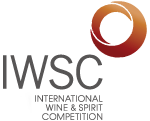
The International Wine and Spirit Competition
The International Wine and Spirit Competition (IWSC), the oldest and most prestigious wine and spirit competition, aims to promote the quality and excellence of the world's best wines, spirits and liqueurs.
All wines, spirits and liqueurs are blind tasted in groups divided by variety, region and vintage as necessary.
IWSC - History
The IWSC receives entries from nearly 90 countries worldwide. No matter where the entry originates, whether it is youthful or aged, it is judged according to its class and treated with respect and consideration.
The unique combination of detailed technical analysis and specialist judging panels means that gaining and IWSC ‘Competition Award’ is an exceptional achievement.
When the original Club Oenologique was launched in 1969, its founder, the wine chemist Anton Massel, could scarcely have imagined the impact that his initiative would have on today's wine and spirit industry, nor the far-reaching commercial implications for those who find themselves rewarded for their excellence. He had the idea of creating a competition which was based not just on organoleptic judgement, but where all entries also had to undergo chemical analysis.
In 1978 the name of the venture was changed to the International Wine and Spirit Competition and, within a short space of time, the disciplines of the Competition were redefined. A set of technical controls was implemented in order to ensure that the highest quality standards were achieved and maintained year after year. The original aim of the IWSC was to award excellence to wines and spirits worldwide. This remains the aim today, encouraging consumer and trade recognition for quality products.
Judging And Procedures
Initially all judging is by region/area/variety/style/type/vintage/age etc. Wines and spirits that win awards may then go forward to the appropriate trophy category, where they compete at national or international level with the best. Tastings are conducted under strict conditions as laid down in the IWSC rules. Samples are presented in flights of numbered glasses to avoid the possibility of judges being influenced by the shape of a bottle. Judges are provided with a score sheet and given the basic parameters of the class being assessed.
Samples are assessed quietly; and without comment; marks are recorded and collected by the panel chairman who may then open discussions in respect of judges comments/scores.
Judges are prohibited from entering the preparation area and cellar before or during Competition judging sessions. Where judges are unable to reach a majority decision, flights will be referred to another panel. An auditor is available at each session to handle any queries. All results remain confidential until officially released.
Provided the required minimum score is reached gold, silver and bronze awards are given in each tasting category or flight.
Medals
Marks are out of 100 and awards are made using the point system below:
GOLD OUTSTANDING: at the judges’ discretion.
GOLD: 90 – 100 Superior example; setting the standard.
SILVER OUTSTANDING: 86–89 Outstanding example; excellent quality.
SILVER: 80-85 Fine example; excellent quality.
BRONZE: 75 – 79.9 Good example; well above average.
